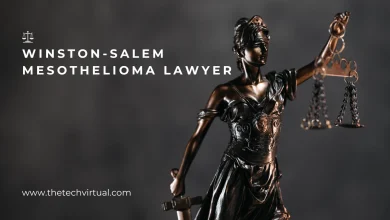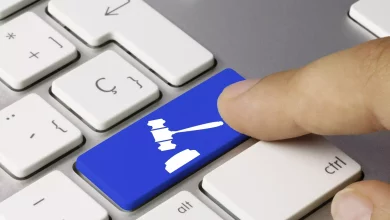What Does a Registered Lobbyist Do?

Have you ever been curious about what a Registered Lobbyist does?
The world of lobbying is constantly changing, with different countries and organizations changing the way they legislate lobbying. So it’s important that you have a basic understanding of what the profession is and what your rights are.
Luckily for you, we’ve created this short guide to give you an idea of what a Registered Lobbyist does.
What Is a Lobbyist?
A lobbyist is a person or group of professionals who try to influence legislation on behalf of a specific cause or industry. They work to explain and promote their client’s interests to decision-makers, such as legislators or government officials.
Lobbyists typically maintain contact with members of Congress and other elected officials to ensure their client’s needs are met. They typically clarify and explain proposed legislation, advocate their client’s position, mobilize support for their cause, negotiate with legislators, and inform their client of developments with existing or proposed legislation.
Registered lobbyists must regularly disclose and report their activities with legislators and must be honest and open about the purpose of their conversations. Lobbyists defending a single cause or an entire industry use their skills to influence legislation, often with the goal of influencing the direction of legislation or policy.
What Does a Lobbyist Do?
A registered lobbyist acts as an advocate for interests that seek to influence public policy. Direct lobbyists have the ability to educate legislators, create coalitions, and negotiate with legislators and other policymakers. Here are more of what a lobbyist does:
Advocate
A registered lobbyist advocate is an individual or group that represents organizations or interests before governmental bodies, such as state legislatures, municipal governments, or the federal government. They lobby on behalf of their clients, who are generally organizations seeking to influence decision-making and public policy.
The lobbyist advocate researches, communicates, sets up meetings, attends conferences, and communicates with government officials, as well as with the public, to build support for their cause. The lobbyist also helps to shape policy decisions. They present both the pros and cons of legislation and other ideas, identifying potential problems as well as potential benefits.
It’s important for the lobbyist to be well-versed in the issues they are addressing. A great lobbyist makes sure that the needs and wants of clients, as well as members of the public, are effectively represented.
Create Publicity Materials
A registered lobbyist may create publicity materials that highlight their position and the issues or causes they represent. These materials may include press releases, fact sheets, speeches, newspaper or magazine articles, op-eds, and web-based materials.
Lobbyists may also create educational materials to explain their issues and positions to the public in an effort to increase the public understanding of their clients and causes. Additionally, they may use social media to reach a larger audience and communicate their messages more effectively.
Finally, registered lobbyists can also use their influence to bring attention to particular issues and convince the public to advocate for their causes. All of these activities help registered lobbyists increase the public awareness of their clients and issues, which can be an important tool for winning favor in the public arena.
Explain the Impact of Bills or Laws
A registered lobbyist is an individual, organization, or entity that works to influence the legislative or administrative process. They do this by developing relationships and advocating the viewpoint of their organization or client.
Lobbyists can work on any issue, including healthcare, taxes, or foreign policy. Lobbyists can have a strong effect on the passage of bills and the implementation of laws. They can help successfully pass bills or laws that are favorable to their interests, or they can work to ensure proposed bills or laws do not pass.
They can also provide valuable information to lawmakers about the potential impact of laws or bills in order to help inform them of the best way to act when considering new legislation. This enables them to make informed decisions that will benefit those they represent.
Develop Relationships
A registered lobbyist is responsible for developing relationships with legislators that represent his client’s interest in order to influence public policy. Lobbyists work to persuade legislators to vote in favor of a client’s desired outcome, typically involving legislation or other government infrastructure.
Lobbyists must be knowledgeable in their client’s industry and be able to articulate their client’s needs and expectations in an effective manner. They must also be able to build trust by showing the legislator that their client’s interests are consistent with the best interest of the public.
Lobbyists must be personable, as well as skilled at negotiation and problem-solving. Consequently, developing relationships with legislators is one of the most important tasks for a registered lobbyist. Doing so allows the lobbyist to ensure that their client’s desires are heard and considered in the government’s decision-making process.
Lobbying Ethics and Regulations
A registered lobbyist’s job is to represent a business, an organization, or another entity, before the legislative and executive branches of government. A lobbyist works to influence decision-making by articulating and advocating for a specific point of view.
Because of the influence they can wield, lobbying regulations by ethics and regulations, lobbyists must comply with federal and state ethics laws and regulations, such as the Lobbying Disclosure Act, state open records and open meeting laws, Rules of the Senate and House of Representatives, and other applicable state laws.
Additionally, lobbyists must adhere to ethics rules, including rules that prohibit political contributions from those they lobby and other codes of ethics. Lobbyists must disclose their contacts with decision-makers and provide impartial, fact-based information to decision-makers.
Learn More About a Registered Lobbyist
A registered lobbyist is an important part of the political process. They can help to shape laws and policies and give businesses and organizations an influential voice.
To learn more about the role of this important profession, look for resources from professional lobbying organizations and information from registered lobbyists and their clients.
Join the conversation and stay up to date on the ever-changing lobbying landscape.
Did you find this article helpful? Check out the rest of our blog for more!






